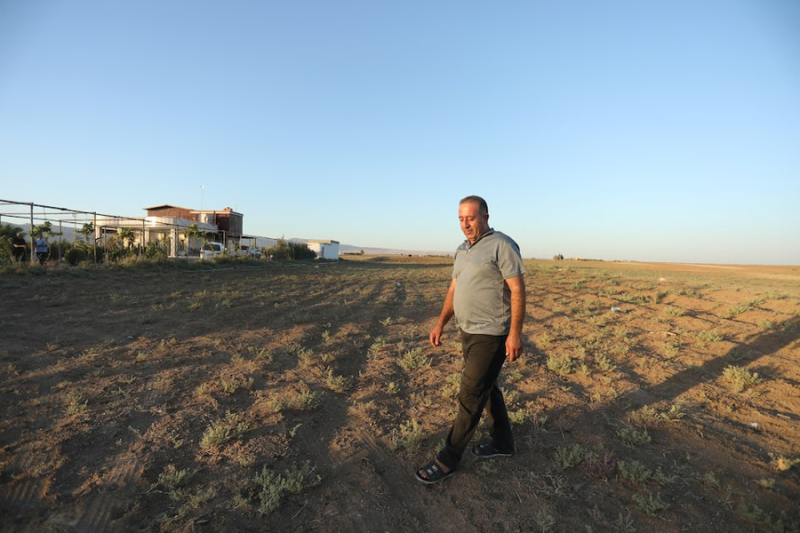- BB to appoint administrators to merge troubled Islami banks |
- Bangladesh Bank allows loan rescheduling for up to 10 years |
- Guterres Urges Leaders to Act as UNGA Week Begins |
- BNP to go door to door for hearts and votes |
- Chittagong port tariffs increased up to 50 per cent |
Historic Drought and Wheat Shortage Threaten Syria’s Recovery

Abbas Othman walks in his dry land, in Qamishli, Syria August 12, 2025.
Syria faces a looming food crisis after its worst drought in 36 years cut wheat production by around 40%, straining the cash-strapped government, which has struggled to secure large-scale grain purchases.
The UN’s World Food Programme warns that roughly three million Syrians could face severe hunger, while over half of the country’s 25.6 million population is already food insecure. The UN’s Food and Agriculture Organization estimates a wheat shortfall of 2.73 million tons this year, enough to feed 16 million people for a year.
President Ahmed al-Sharaa’s government, seeking to rebuild after 14 years of civil war and the ouster of Bashar al-Assad, has so far purchased only 373,500 tons of wheat from local farmers—about half last year’s volume. Around 2.55 million tons will still need to be imported.
Small private shipments totaling roughly 200,000 tons have been arranged, but no major import deals have been announced. Limited emergency aid has arrived, including 220,000 tons of wheat from Iraq and 500 tons of flour from Ukraine.
“This has been the worst year ever since I started farming,” said Nazih Altarsha, a wheat farmer in Homs. Many others in key regions like Hassakeh, Aleppo, and Homs reported harvest losses or severely reduced yields. Only 40% of farmland was cultivated this season, much of it now ruined.
To encourage sales to the government, farmers were offered $450 per ton—$200 above market price—but many could sell only a fraction of their harvest.
Before the civil war, Syria produced up to four million tons of wheat annually and exported around one million. Domestic production is now expected to fall to about 1.2 million tons this year.
Despite a recent US decision to lift sanctions that had slowed economic recovery, Syria’s grain-buying agency has not announced a new purchasing strategy, and import efforts face delays due to financial constraints. Russia, a major wheat supplier and Assad supporter, has largely suspended deliveries since December amid payment uncertainties.
The drought and wheat shortage present a critical test for Syria’s new leadership as it struggles to rebuild the country and ensure access to staple food for its population.

